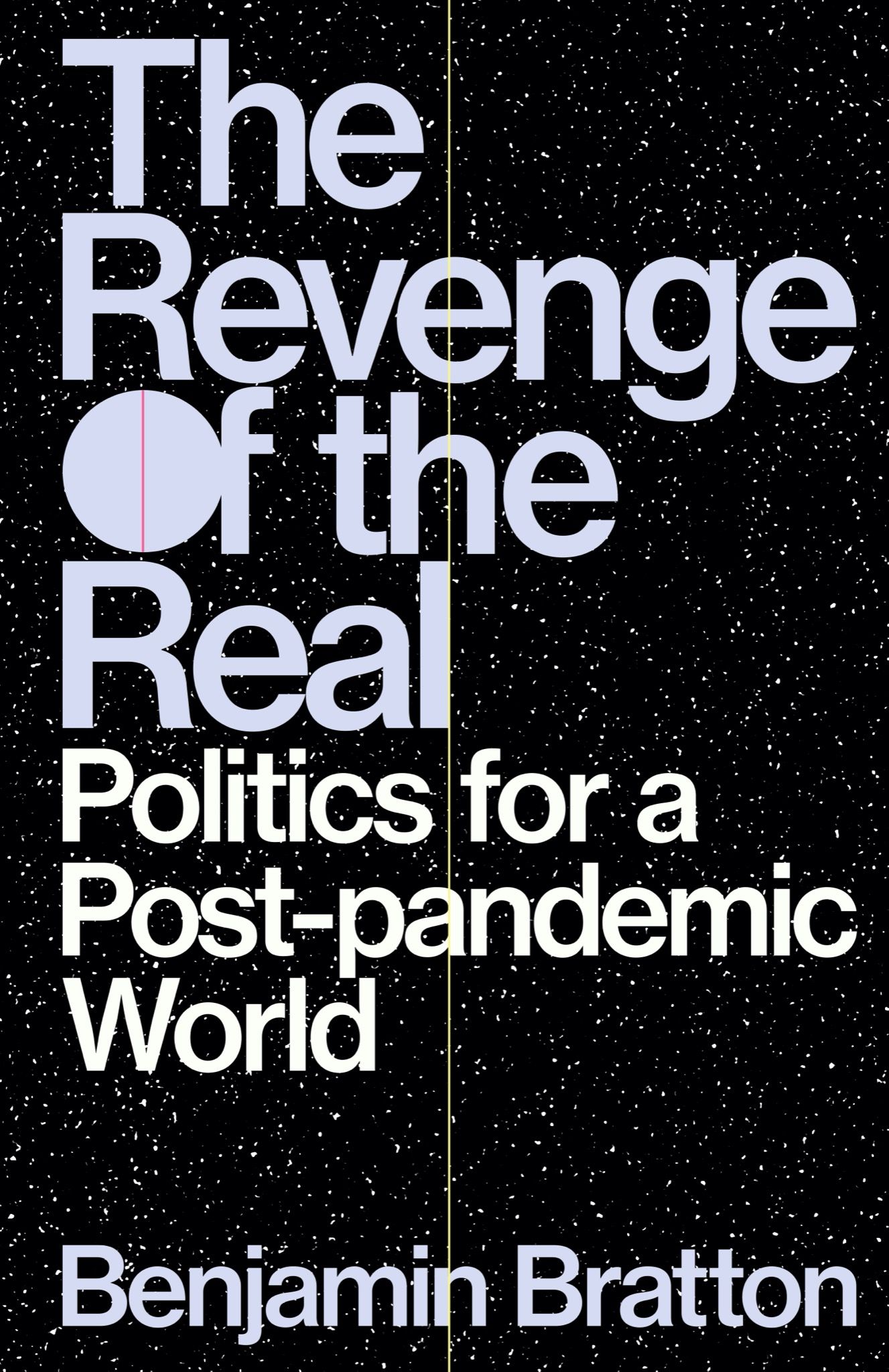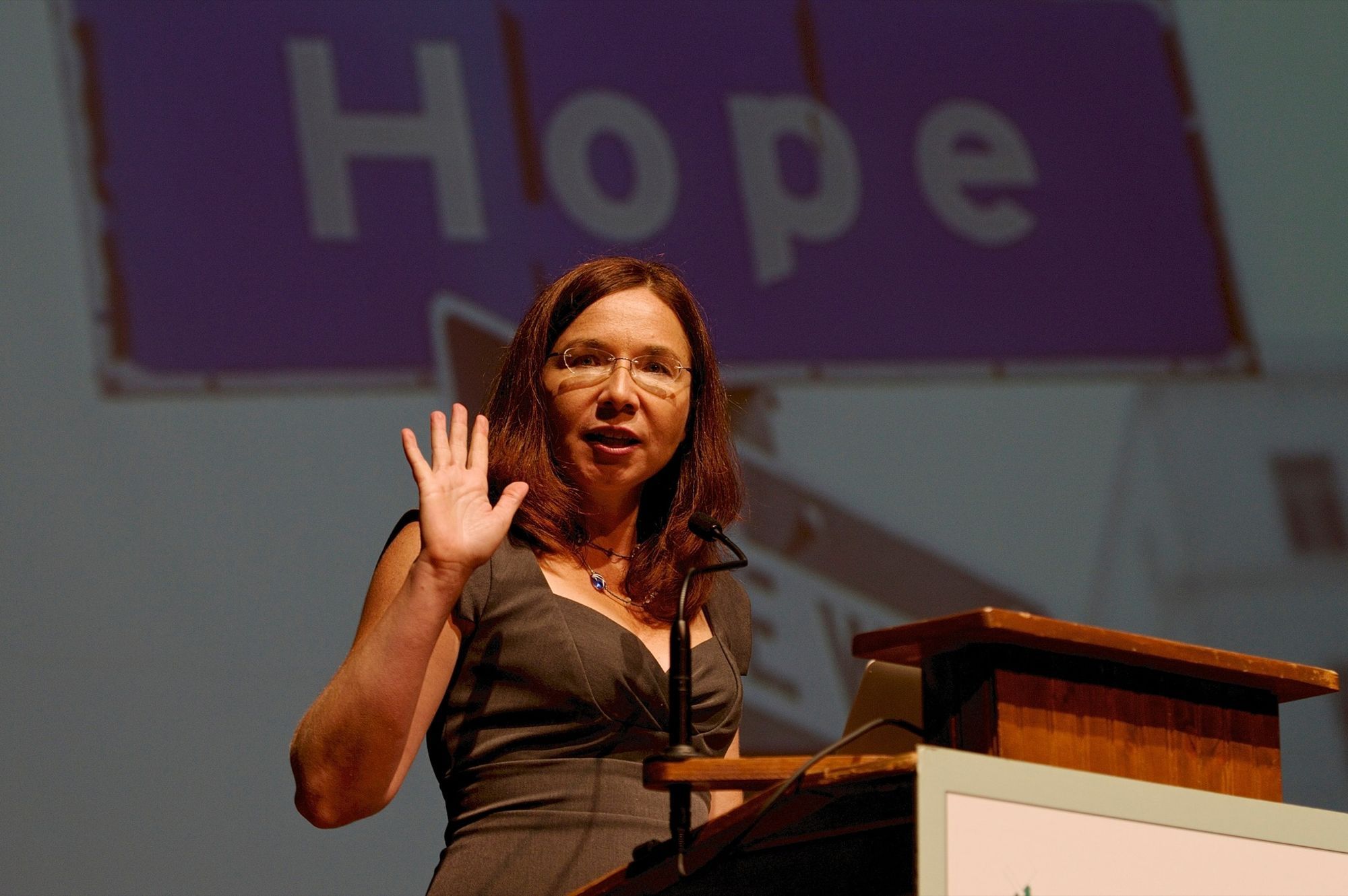Revenge of the Real: BENJAMIN BRATTON on the West’s Covid Ineptitude
|Andrew Pasquier

The pandemic we keep thinking will end soon still won’t. As initial fear of the virus mutates into gritted acceptance of its ongoing presence, the biopolitical calculus of governments evolves from limiting cases at all costs to a focus not only on vaccinations and minimizing death, but on a return to an at least rhetorical “normalcy.”
In a new book published by Verso, Benjamin Bratton calls this spiraling crisis The Revenge of the Real. If the virus is a mercurial control variable, the wildly divergent political responses offer one of the largest ever “experiments in comparative governance.” So far, the results aren’t good – especially for the West. If Covid-19 is “a test case for how we can deal, or not deal, with future crises like climate change,” as Bratton writes, we should be scared by our ineptitude.
From mask debates to Covid-tracing systems, Bratton challenges authoritarian leaders and sentimental liberals who distrust making hard, scientifically-informed decisions in the face of the crisis. When we spoke this summer, he reminded me that “pathogens and the biosphere don’t care about mythical libertarian bullshit.” More than anything Bratton, a professor of Visual Arts at UC San Diego and the director of the Strelka Institute for Media, Architecture and Design in Moscow, argues that we have no choice but to build new, planetary-scale political and computational structures for the future. “The longer that intelligent and equitable plans are deferred,” he says, “the more likely that stupid and authoritarian plans will be realized by default.” It’s time to get serious.

Andrew Pasquier: In the first chapter, you joke that the “Kübler-Ross stages of grief are the new national horoscope” in the age of Covid-19. Now, more than a year into the pandemic, where would you say we are at?
Benjamin Bratton: It is obviously quite fragmented, depending on where you stand. Things seem to be moving both backwards and forwards at once. We’ll get to an acceptance phase, and then it cycles back to denial again. But, yes, all jokes aside, the political fragmentation we’re seeing is also a psychological fragmentation.
Do you think Europe will have more of a Covid-19 “hangover” than the US?
My guess is that Europe will take longer to return to some form of normal, but it will be more consistent than the always patchwork reality of the US. At this point, the vaccine rollout happened sooner in the US but the percentage of the population who refuses to get it, and therefore drags out the lockdowns, is greater than in Europe. I wouldn’t be surprised if this time next year – that is, summer 2022 – the US still has pockets of outbreaks in areas with high levels of vaccine hesitancy. The ways that different countries dealt with the pandemic from a policy standpoint are quite different, but different political cultures make those policies possible or impossible. “Becoming ungovernable” is not necessarily so smart.
There seems to be a certain performativity to the way the US is dealing with Covid-19. Is it American political culture? Americans were vicious to each other on either side of last year’s biopolitical debates, and then just moved on.
I agree, and the mask wars are a great example of that. For most of our human history, masks performed a function of allowing people to wear a temporary identity – one that sometimes even revealed another aspect of who they really were. And then, beginning with World War One, masks began to have a different utilitarian function in response to new kinds of atmospheric warfare and protection from poison gases. There is thus a dual function between the utilitarian and performative uses of a mask. We see it at play with Covid-19: the decision to wear a mask is both for personal health reasons and to present yourself as a trustworthy participant in the immunological commons. In contrast, the refusal to wear a mask is a declaration that you hold a different view of your relationship to those around you. Beyond its epidemiological function, the performativity of the mask is quite pronounced.


The situation seems to play out differently across Europe depending on the political culture of a country. In France or Spain, there are these disciplinary but illogical measures. Masks are required outside on the street and there are police-enforced curfews. Meanwhile, bars are open indoors and packed with people. In Northern Europe, governments apply fewer blanket measures, but instead appeal to individual rationality and responsibility.
It’s almost tragic how stereotypical many of the cultural responses have been to the pandemic, especially in what you’d call “historically ungovernable cultures” such as Brazil, Texas, Italy. In contrast you see this self-effacing, deeply Protestant response in Northern Europe, where everybody falls in line on their own accord out of duty and shame. This relates to one of my major points in the book: we can view the pandemic as a massive experiment in comparative governance, with the virus as a control variable. Different political cultures have to deal with it in different ways. The answers are not just a bunch of common policy and health recommendations; there are different cultural logics of governance at play. Some logics worked, some tragically did not. I hope we can read the results honestly.
“We can view the pandemic as a massive experiment in comparative governance with the virus as a control variable. Different political cultures have to deal with it in different ways.”
I was recently struck by a graph comparing the number of Covid cases in the five European countries with the highest vaccination rates and the five countries with the lowest. From Bosnia to Germany, there is a rapid decline in the number of cases simply because it’s summer. The Revenge of the Real focuses on the concept of governance, but the novel coronavirus is an unexpected, natural thing. Do you think we run the risk of overemphasizing the power of politicians to really control its spread?
Of course once the pandemic has started it’s too late to really prepare. Countries that did best were not caught flatfooted. The US sat on its hands for months watching what was happening in China as if it could never happen here: an isolationism of the most absurd kind. The passage of people between the Northern Hemisphere and Southern Hemisphere did facilitate more rapid spread of the virus, but we see Brazil and Argentina on a different inverse summer-winter still doing poorly, especially Brazil with a literal flat-Earther as president. The reality of the virus and its relation to human bodies is indifferent to all this. The “real” is the DNA and RNA signature of the virus. It’s biochemical reality, regardless of the narratives and mythologies that we might want to impress upon it.
I think about governance in a way that’s both broader and more specific than simply governments. It may be related to “governmentality” in the Foucauldian sense, but Foucault sees its productive force in negative terms, whereas I take it as a necessary technique. Governance really has to do with all of the modes and processes by which a society makes sense of itself, and then acts upon itself through processes of deliberate composition. “Refusing biopower” is not an option because it is a way of ensuring that biopower operates without accountability.
To your question: are we blaming figurehead leaders too much for the outcomes? I’m certain that’s true. In a lot of Western countries – the United States most obviously – we’ve dismantled the state’s capacity to govern deliberately over the past decades, not months. At the end of this road, we may have nothing left but police functions in terms of what states are allowed to do. We find Western societies unable to actually govern themselves and end up blaming specific regimes and specific politicians sitting behind specific desks. You might call it missing the forest for the trees. We can put blame on Angela Merkel or some minister in Brussels, but this isn’t really what matters. The bigger question is: how did the West, over an arc of 30 or 40 years, find itself in a position where it handled the crisis far worse than Taiwan or South Korea, even though they were right next to the original outbreak in China? Why is all of this still going on? How is it that the people who balked the loudest about lockdowns now refuse to get vaccinated, ensuring more otherwise unnecessary lockdowns? What is the name for this cultural response?
“We find Western societies unable to actually govern themselves and end up blaming specific regimes and specific politicians sitting behind specific desks. You might call it missing the forest for the trees.”

What role has the media played in defining public discourse about Covid-19? Do you think it has been counterproductive or helpful?
Certainly both, depending on what media we consider. While my book makes the argument that our ability to deal with the virus was totally inadequate, I still think there was an impressive mobilization of sorts. What made lockdown culture possible for the course of the year was not social media, but the cloud, which became the essential economic infrastructure – from food delivery, to e-commerce, to Zoom meetings. It did so in ways that probably accelerated the virtualization of a lot of economies by five or six years in a matter of five or six months. This clearly has both positive and negative implications. While much will be said about the role of social media in spreading bullshit, the bigger story is the role digital media had in organizing pandemic culture with virtualization and automation.
Last spring when the pandemic hit, there wasn’t much information about the one thing that everyone wanted information about: Covid. In The Revenge of the Real you discuss this problem, and call to expand the “sensing layer” of society. Leaders need accurate data to make epidemiological models and sound political decisions – a sort of necessary “surveillance” layer to make information-backed governance structures work.
I’ve tried to shift some of the discourse around “surveillance.” It’s not that surveillance is now good instead of bad, but rather that the term is too narrow of a word to talk about all of the different ways in which a society makes sense of itself and models itself. We should not reduce this nuance into a single master concept with all of its panopticon and policing connotations. Societal self-sensing has to be a lot more than just policing vs. freedom. In terms of the pandemic, a lack of testing availability means that some people are a body that doesn’t “count.” For them the politics of sensing and modeling are rather different than for those who can afford to cultivate privacy.
That said, governing doesn’t magically operate the way in which it needs to just because you have more data. Right now, we’re primarily using planetary scale computation to produce data about individual people’s likes and preferences in order to produce complex models of what they’re most likely to click on next. This is an incredible mistake. The question is not just, “more data or less data?,” but “what kind of data does society actually need?”
“While much will be said about the role of social media in spreading bullshit, the bigger story is the role digital media had in organizing pandemic culture with virtualization and automation.”

In the book, you suggest that the Covid crisis is not only a comprehensive study in comparative governance, but also a test case for how we can deal, or not deal, with future crises like climate change. What are your takeaways from this crisis that should inform how we tackle the impending one?
The rise of populism over the last five or six years has coincided with an intensification and hardening of preferred niche narratives that provide people with a socio-psychological comfort zone. Politics has become very much determined by these differentiations, yet now [with Covid-19] you have a “revenge of the real” against these types of siloed political narratives by its indifference to their arbitrary commitments.
As I said earlier, the pandemic exposed the generational dismantling of the capacity for governance in the West. On the Right, there is this faith that markets will produce the best of all possible solutions rather than any top-down planning, and on the Left there’s a deep post-1968 distrust in science, technology, and “governmentality.”
Yes – you pinpoint this gut reaction on the Left against biopolitical solutions, tying it to a post-structuralist, “we don’t trust in science” attitude parading as progressivism in academia.
Many such people are genuinely conflicted because they do “trust” the epidemiology and the vaccines, but find themselves in an unexpected position with regard to the biopolitics of it all. Others are die-hards. No way are they taking the implant and eating the bugs. The general suspicion of science is perhaps a final violence that the Boomers we have foisted on your generation. Many see the world through the fog of a long term post-68 hangover where the world is divided into the “hierarchical straights” who brought Vietnam, versus the non-hierarchical rebels who understand that all authority should be flattened. Following from that, they may presume that composition and construction are always doomed by their contradictions, and that deterritorialization is always better than territorialization. I am overgeneralizing in order to answer your question, but such a reflex was also present in the Occupy movement which fell apart according to a predictable sad script almost predetermined by this self-defeating orthodoxy. For some, there is a profound but ultimately pathological faith in the efficacy of “spontaneous emergence” to govern a complex society that, in practice if not in premise, isn’t that far from right-wing libertarianism. I see them as two sides of the same coin.
This is also, it must be said, a very Western problem. It is incomprehensible for much of the rest of the world. For most of the world it seems like the most delusional and self-indulgent form of pseudo-politics imaginable. What must be said? For one, it is time for the West to be more willing to learn from Asia. Not only is the post-Cold War dream that China would eventually become like the West obviously over, some are entertaining an inverse proposition: that the West will evolve toward the China model as a way of stemming the tide of its influence elsewhere. It is never that simple, but the organization of longer-term, more stable, and even top-down forms of social governance may very well be something that does prove to be a long term consequence of the pandemic calamities. Organizing all politics around the amplification and congratulation of individualistic autonomy for its own sake, or the magical sovereignty of populist leaders, have both hopefully run their course. We can only hope. I don’t see a direct path away from climate disaster otherwise.
“The general suspicion of science is perhaps a final violence that the Boomers we have foisted on your generation.”
But what will it take for the political culture in the West to become more top-down and more planetary? It’s hard to imagine this taking place democratically. The book charts the emergence of an “epidemiological view of society” this year, but a lot of people hate that collective mindset. You see individualism all over the fractured political response in the West.
The longer that democratic transformations are delayed or unsuccessful, the more likely that non-democratic paths will be taken. Similarly, the longer that intelligent and equitable plans are deferred, the more likely that stupid and authoritarian plans will be realized by default. Those who push back now on strong planning and transformation for ideological reasons are actually guaranteeing what they fear most.
The shift needs to happen at an infrastructural scale that can come from many different places but has to involve very large scale mobilization of power, capital and people. A billion mutual aid networks is not going to get it done and there is too much at stake to fail. I don’t share the faith some people have that somehow we’re going to address a centuries-long shift in planetary geochemistry just by tweaking people’s attitudes: supposedly first you change people’s moral disposition, then there’s a reorientation of their actions, and finally, maybe, they’ll elect different politicians who will make different public investments. Down the line we may get to the point of actually transforming the technologies and the economies that are causing climate change, but that is an extremely roundabout process. The longer we wait, the more we will need more direct paths.
“I don’t share the faith some people have that somehow we’re going to address a centuries-long shift in planetary geochemistry just by tweaking people’s attitudes.”

Would geoengineering solutions help bypass some of the reactionary politics and governance failures that we lived through this year?
It depends of course on what is meant by that term, “geoengineering.” It includes some measures such as direct carbon capture that we should be funding and implementing as much as possible, and others such as solar radiation management that one hopes we never have to even attempt. The spectrum between must-do-now and hopefully-never-use is vast.
There are many people who are worried that geoengineering won’t work. They argue that by relying on these approaches, we delay making more fundamental geocultural and geopolitical transformations needed to mitigate climate change. This is not at all unreasonable. And then there are others who argue that these technologies will work and so will therefore enable us to delay making fundamental geopolitical and geocultural transformations. There is a smaller group within the latter who clearly are less worried about the future being cancelled than judgment day being cancelled. They don’t really want any “solution” to work if it means business as usual. Ultimately, I find their position to be more aligned with the apocalyptic and eschatological visions of millenarian religious groups than any serious ecological politics.
My own position is that in order for these geoengineering technologies to actually be deployed successfully, a fundamental transformation of our geopolitical and geocultural system would be necessary. In terms of planetary governance those deployments may, by necessity, directly bring about a decisive shift in what governance governs. That said, I don’t make a strong distinction between geotechnologies and geopolitics because I think they’re very deeply entwined, and it is a mistake to presume that one or the other always does, or always should, have sovereignty over the other.
We are at a point in history where it is quite clearly understood that the political, economic, cultural, epidemiological, bio-political circumstances in which we are all enmeshed inevitably operate at a planetary scale. But, the political technologies we have, to act upon those circumstances and compose them, are artificially diminished down to spatial and temporal scales that are mismatched with the conditions they’re being asked to act upon. Populist nationalism of recent years is symptomatic of this reality on many levels, which is ironic in that the rise of modern nationalism itself was a response to the need to govern globalizing economies, among many other things. Something has to give. That new modes of planetary governance should emerge is not a question of when, but of how. The answer is very likely not a new federalism. The United Nations is a transitional model.
“The future cannot continue to be conceived as an endless dollhouse replay of the Cold War. Time to get serious.”
It’s now six months to a year since you wrote much of the book, and most people are ready to move on from the pandemic. Do you think the experience of the past year has really changed people? Are we any closer to planetary politics?
I hope it is now possible to move on. We will see. I am not not necessarily optimistic. I realize that there is considerable theoretical experimentation going on, especially with younger people. It is likely that the experimentation needs to be even broader and more comfortable with not just challenging power but assuming power. For example the now ubiquitous “politigram” four-square diagram that organizes all possible positions between the poles of left vs. right and authoritarian vs. libertarian is exemplary of my point. Within that quadrant matrix, all manner of weirdness may be entertained, but what is quite clear is that it is this very framework that needs to be displaced by additional models. The future cannot continue to be conceived as an endless dollhouse replay of the Cold War. Time to get serious.
Credits
- Interview: Andrew Pasquier


